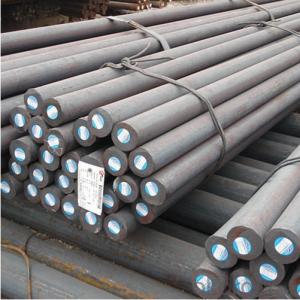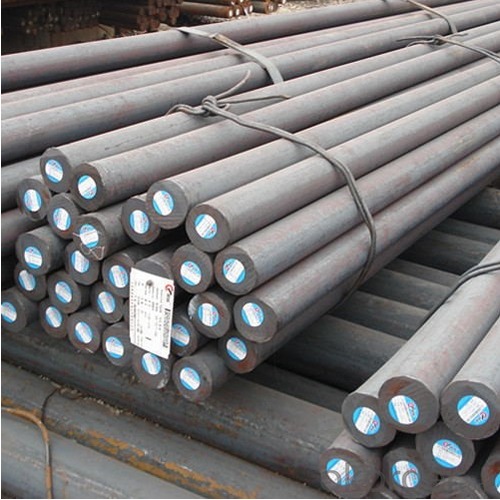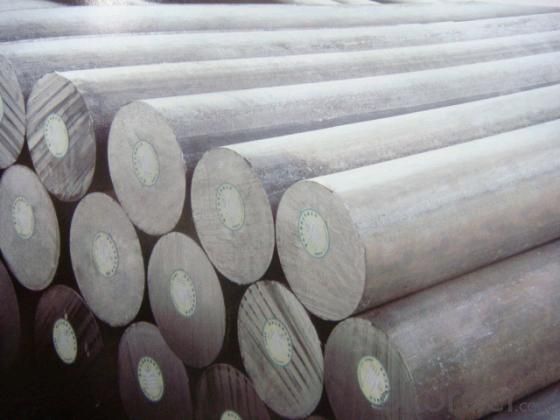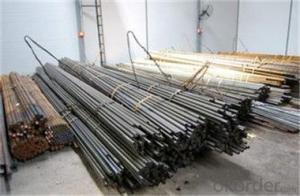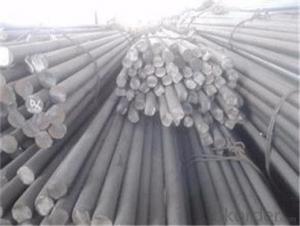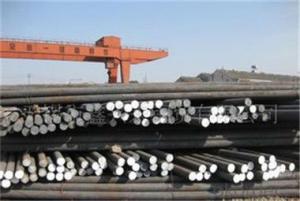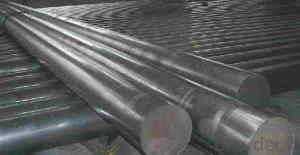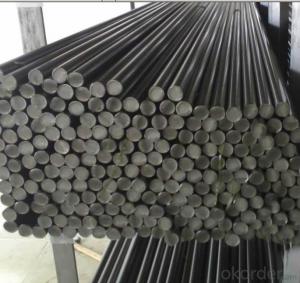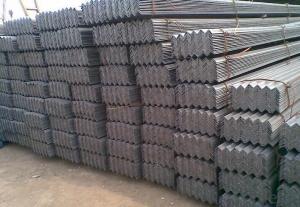C22 Carbon Steel Bar from CNBM 16mm-300mm
- Loading Port:
- Tianjin
- Payment Terms:
- TT OR LC
- Min Order Qty:
- 25 m.t.
- Supply Capability:
- 50000 m.t./month
OKorder Service Pledge
OKorder Financial Service
You Might Also Like
Specification
C22 Carbon Steel Bar from CNBM 16mm-300mm
Product descripition:
1: Dia: 100-1200mm;
2: Length: 3000-12000mm
3: Delivery condition:Hot forged, black surface/Peeled/Turned.
4: Delivery date: 30-45 days.
5: MOQ: 20tons.
6: Payment term: 30% in advance, 70% before shipment.
7: UT test standard: Sep 1921-84 c/c.
8: Application: Statically and dynamically stressed components for vehicles, engines and machines, for parts of larger cross-section, crankshaft and gears.
Chemical Composition:
| Grate | C | Si ≤ | Mn | P ≤ | S ≤ | Cr ≤ | Mo ≤ | Ni ≤ |
| C22 | 0.17-0.24 | 0.40 | 0.40-0.70 | 0.045 | 0.045 | 0.4 | 0.1 | 0.4 |
Advantage:
1.More than 20 years experience in special steel
2.Professional manufacturer and trading combination
3.Most products are in stock, and MOQ is 1 metric ton
4.Reliable quality & competitive price & excellente service
5.Inquiry will be replied in 24 hours
Application:
High-quality carbon structural steel/S20C/ 1020/ 20 S20C structural carbon steel bar /1020 /20 can be used to be manufactured medium or small carburization or nitrocarburizing parts and press forging parts, such as lever shaft, selector fork of speed changing box, gear, heavy mechanical lever and shackle, etc.
Product Show:
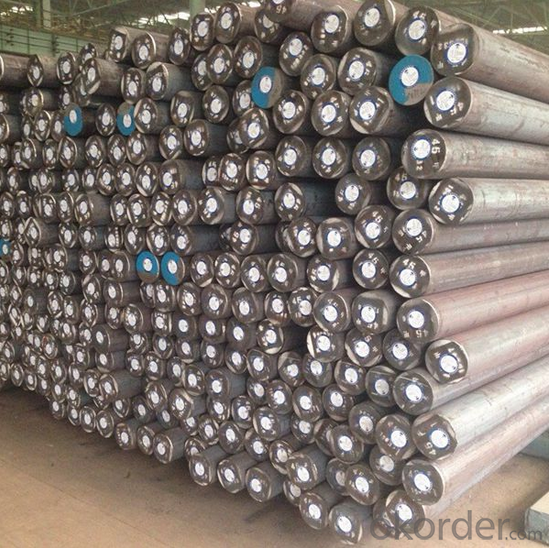
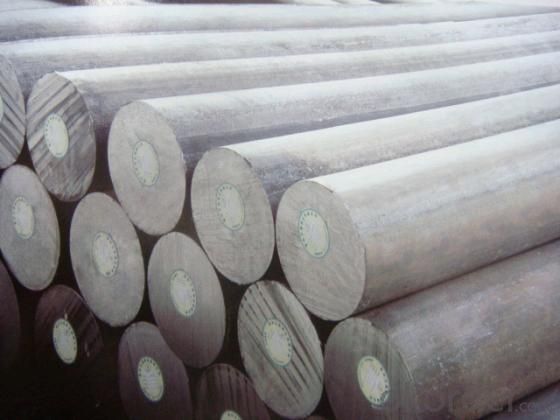
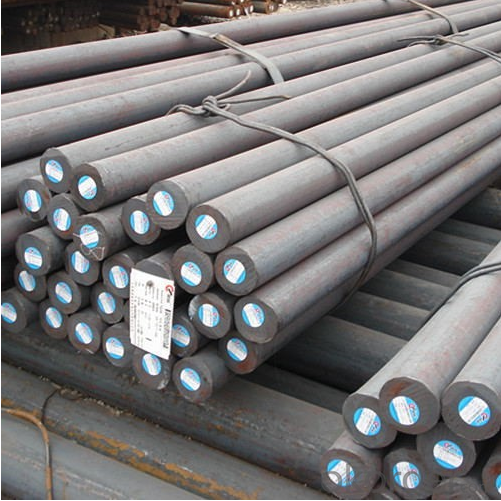
- Q: How does the heat treatment process affect the hardness of special steel?
- The heat treatment process can significantly affect the hardness of special steel. By subjecting the steel to controlled heating and cooling cycles, the microstructure of the steel can be altered, leading to changes in its hardness. Hardening, for example, involves heating the steel to a high temperature and then quenching it rapidly, resulting in a harder and more brittle material. On the other hand, tempering, which involves reheating the hardened steel at a lower temperature, can reduce the brittleness while maintaining a desirable level of hardness. Thus, the heat treatment process allows for precise manipulation of the hardness of special steel to meet specific requirements.
- Q: How does special steel perform in extreme temperature conditions?
- Special steel is designed to perform exceptionally well in extreme temperature conditions. It has a high tolerance for both low and high temperatures, allowing it to maintain its structural integrity and mechanical properties even in the harshest environments. This makes special steel an ideal choice for applications that involve extreme heat or cold, such as aerospace, energy production, and industrial processes.
- Q: What are the different forming techniques used for special steel?
- Some of the different forming techniques used for special steel include hot forging, cold forging, extrusion, rolling, and casting.
- Q: What are the factors to consider when selecting special steel for a specific application?
- When selecting special steel for a specific application, there are several important factors to consider: 1. Mechanical properties: The mechanical properties of the steel, such as strength, hardness, toughness, and ductility, are crucial in determining its suitability for a particular application. It is important to match the steel's mechanical properties to the specific requirements of the application to ensure optimal performance and safety. 2. Corrosion resistance: Depending on the application, it is essential to consider the steel's resistance to corrosion. Different environments, such as marine, chemical, or high-temperature conditions, may require specific corrosion-resistant alloys or coatings to ensure the longevity and reliability of the steel in service. 3. Temperature resistance: The ability of the steel to withstand high or low temperatures without losing its mechanical properties is crucial in many applications. Factors such as thermal expansion, thermal conductivity, and resistance to thermal fatigue must be considered to ensure the steel can perform effectively in the intended environment. 4. Weldability and fabricability: If the steel needs to be welded or fabricated into complex shapes, the ease of weldability and fabricability becomes an important factor. Some steels may require specialized welding techniques or preheating to avoid cracking or distortion during fabrication. 5. Cost: Cost is also a key consideration when selecting special steel for a specific application. It is important to balance the desired properties of the steel with the available budget to ensure cost-effectiveness without compromising performance or safety. 6. Availability: The availability of the chosen steel grade in the required form, size, and quantity is another critical factor. It is important to ensure that the selected steel can be easily sourced and obtained within the required timeframe to avoid project delays or cost overruns. 7. Compliance with standards and specifications: Depending on the industry or application, there may be specific standards, specifications, or regulations that the steel must comply with. It is essential to select a steel grade that meets these requirements to ensure compliance and maintain the necessary certifications or approvals. By considering these factors, engineers and manufacturers can make an informed decision when selecting special steel for a specific application, ensuring optimal performance, durability, and safety.
- Q: What are the different surface treatment methods used for special steel?
- There are several different surface treatment methods used for special steel, including but not limited to electroplating, galvanizing, powder coating, and heat treatment. These methods help to enhance the corrosion resistance, improve the appearance, and increase the durability of special steel products.
- Q: How does special steel contribute to the transportation equipment industry?
- Special steel plays a crucial role in the transportation equipment industry by providing high strength, durability, and resistance to wear and corrosion. It allows for the construction of lighter yet stronger components, leading to improved fuel efficiency, increased payload capacity, and enhanced safety in vehicles. Additionally, special steel enables the production of precision parts and components, ensuring the reliability and performance of transportation equipment.
- Q: How does electrical steel contribute to the production of transformers and motors?
- Electrical steel, also known as silicon steel, plays a crucial role in the production of transformers and motors. Its unique magnetic properties, achieved through the addition of silicon, allow for efficient energy transfer and reduction of energy losses. The low core loss and high magnetic permeability of electrical steel enable transformers to convert high voltage electricity into lower voltage levels, and motors to efficiently convert electrical energy into mechanical motion. In essence, electrical steel is the essential material that enables the high efficiency and performance of transformers and motors, making them indispensable components in various electrical applications.
- Q: How does special steel contribute to the manufacturing of cutting blades?
- Special steel is crucial in the manufacturing of cutting blades as it offers exceptional hardness, durability, and resistance to wear and corrosion. These properties allow cutting blades to maintain sharpness for longer periods of time, resulting in more efficient and precise cutting operations. Additionally, special steel can be tailored to specific requirements, enabling the production of cutting blades suitable for different applications, such as those used in industries like automotive, aerospace, or construction.
- Q: What are the different types of bearing steel?
- There are several different types of bearing steel, including high carbon chromium bearing steel, high carbon high chromium bearing steel, and high carbon chromium molybdenum bearing steel.
- Q: How does special steel contribute to the defense sector?
- The defense sector relies heavily on special steel, which offers numerous benefits and applications that bolster national security. First and foremost, special steel is renowned for its exceptional strength, durability, and resistance to wear and corrosion. These attributes make it an ideal material for manufacturing military equipment and weapons. Tanks, armored vehicles, naval ships, and aircraft carriers all benefit from the structural integrity and protection against enemy attacks provided by special steel. Furthermore, the use of special steel in ballistic armor and bulletproof vests enhances the safety of soldiers on the battlefield. Additionally, special steel alloys possess remarkable thermal resistance and high-temperature capabilities, making them suitable for producing jet engines, turbines, and rocket components. These materials can withstand extreme conditions, enabling faster and more efficient military aircraft, missiles, and vehicles used in space exploration. Moreover, special steel's electromagnetic properties make it invaluable in the defense sector. It is employed in developing radar systems, communication devices, and electronic warfare equipment. Special steel alloys effectively shield against electromagnetic interference, ensuring secure and reliable communication during critical defense operations. Furthermore, special steel plays a vital role in the production of precision tools and machinery used in the defense sector. With its high machinability, special steel enables the fabrication of complex components with tight tolerances. Military-grade cutting tools, drills, and machine parts are manufactured using special steel, thereby enhancing the efficiency and effectiveness of military operations. In conclusion, special steel significantly contributes to the defense sector by providing crucial properties such as strength, durability, resistance, and more. Its applications in military equipment, weaponry, armored vehicles, aircraft, and electronic systems not only enhance national security but also protect soldiers and enable advanced defense capabilities.
Send your message to us
C22 Carbon Steel Bar from CNBM 16mm-300mm
- Loading Port:
- Tianjin
- Payment Terms:
- TT OR LC
- Min Order Qty:
- 25 m.t.
- Supply Capability:
- 50000 m.t./month
OKorder Service Pledge
OKorder Financial Service
Similar products
Hot products
Hot Searches
Related keywords
